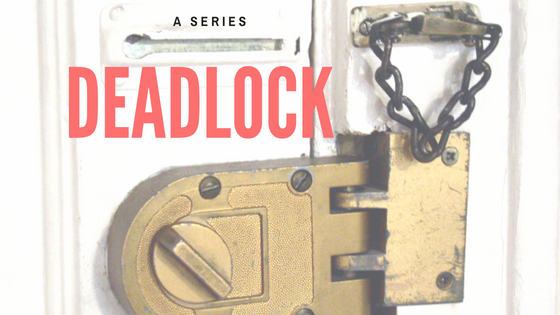- Courts use their authority to appoint a custodian to take control of a closely held corporation as a remedy to deadlocked directors or shareholders.
- A showing of serious or irreparable harm is required before a court will intervene in a deadlock among shareholders or directors; more than dissension is required.
- A court may direct a custodian to dissolve and liquidate a corporation, or sell the entire business as a going concern, in the best interest of the shareholders and other constituencies like employees.

Appointing a custodian or receiver of a closely held corporation is a recognized remedy when the owners are deadlocked. Once appointed, the custodian or receiver may be given wide authority to break the deadlock, to manage, to sell or dissolve the corporation — including cases in which the remedy seems to go beyond what is provided in the statute.
A Series Examining Deadlock Among the Owners of Closely Held Corporations, Limited Liability Companies and Partnerships
A bitter business divorce between two former college sweethearts provided the background for the Delaware Supreme Court’s analysis of the circumstances in which it could provide a dissolution-like remedy and order the sale of a large successful business.

The decision of the Delaware Chancery Court, Shawe v. Elting, involved Transperfect Global, Inc., a corporation formed by Elizabeth Elting and Philip Shawe in 1992 while the pair lived together in a New York University dorm room. The two became the co-CEOs, sole directors and equal owners of a company that provided a variety of translation services from locations around the globe, generating $80 million in profits in 2014. (Shaw later transferred 1 percent to his mother, but she remained firmly in his camp, which caused the deadlock to continue.)
The couple ended their romantic relationship in 1997 and became increasingly estranged and antagonistic toward each other. In 2011, Elting proposed that the parties enter into a buy-sell agreement, which the parties did not execute, and the relationship deteriorated into an inability to act as directors combined with allegations of espionage and harassment. By 2014, the parties were engaged in litigation.
Delaware statutory law does not expressly provide for judicial dissolution; rather it provides the court with the ability to appoint a custodian or a receiver and also to define the scope of their duties, including the dissolution or sale of a business. The Chancery Court examined the inability of the shareholders to elect directors, the ongoing inability to make fundamental decisions and the threat of harm to the business and its substantial constituency of employees and customers, and whether the company was pursuing its essential business purpose.
The Court ordered the appointment of a custodian and directed the custodian to sell the business. Shawe appealed, arguing that a custodian may be appointed to control an operating business, but that the statute did not permit the court to direct the custodian to sell the business. The Supreme Court affirmed (opinion here) the trial court, however, holding that the Chancery Court may determine the scope of the custodian’s duties — in this case to sell the company as a going concern — and that the trial court had not abused its discretion in concluding that a sale was the only feasible alternative. See Shareholder Deadlock Grounds to Sell Corporation.
It is significant to note that the court did not rule in favor of Elting’s claim that an equitable dissolution – which Delaware courts may order — was warranted, holding that it is precondition to such a remedy that the party seeking dissolution establish a “very high level of fiduciary misconduct resulting in harm to the Company or its shareholders.”
In the Transperfect litigation, as in other cases involving corporate deadlock, we see many the same issues presented. First, there is an inability to take a decisive action on matters of significant — if not critical — importance to the business. Second, we see a situation in Transperfect in which there does not appear to be any other solution due to the lack of any contractual agreement sell and the intractable animosity between the combatants. Third, we find in Transperfect a threat of irreparable harm to the business (and, in this case, to its substantial workforce). Finally, we find a weighing of the equitable considerations. A sale of the business, as opposed to dissolution or a sale of the interests of one of the members, is the most common sense and equitable manner of dealing with the dispute.
Balancing the various remedies available to a judge, the trial court concluded that a sale of the business — rather than liquidation, a forced sale of one of the parties’ interests, or ongoing judicial involvement – was the best solution to resolve the dispute between the owners. The Supreme Court ultimately held that the decision on the remedy was well within the trial court’s discretion.
The court opinions that consider whether judicial intervention is appropriate very typically turn on whether there is a threat to the ability of the business to continue its existing operations. It is this threat to the continued viability of the business, whether to its financial condition or its goodwill and reputation, that constitutes the threat of irreparable injury that permits judicial intervention. Irreparable harm to a corporation, the Chancery judge noted in the Transperfect trial opinion, includes “harm to a corporation’s reputation, goodwill, customer relationship, and employee morale.”
The party seeking judicial relief based on deadlock in a closely held corporation must establish irreparable harm to provide a basis for invoking the court’s ability to fashion an equitable remedy, which may involve the sale of an interest, appointment of a custodian, receiver, provisional director or special fiscal agent, or in the extreme case the dissolution or sale of the company.
It is a long-standing principle of Delaware law, for example, that dissolution in the form of the appointment of a liquidating receiver is available as a remedy “only upon a showing of gross mismanagement, positive misconduct by the corporate officers, breach of trust or extreme circumstances showing imminent danger of great loss to the corporation which, otherwise, cannot be prevented … mere dissension among corporate stockholders seldom, if ever, justifies the appoint of a receiver for a solvent corporation.” (See Hall v. John S. Isaacs & Sons Farms, opinion here).
Corporate statues in many states will permit the dissolution of a corporation when the shareholders are unable to elected directors over two or more years. However, even in those circumstances, the courts may be hesitant to dissolve an otherwise viable corporation over the deadlock. The Oregon Supreme Court in a 1959 decision in Jackson v. Nicolai-Neppach Co. (opinion here) held that the inability to elect successor directors alone, even though it was statutory grounds for dissolution under then-existing Oregon law, was not sufficient to order the liquidation of a solvent company. The court retained its equitable discretion to fashion remedies and there was insufficient evidence of harm to force such an extreme measure. Here again, actionable deadlock required corporate paralysis.
It is not the mere fact of dissension, even intractable dissension, that is the lynchpin of a court finding or corporate deadlock. Rather, it is the pressing threat of harm to the entity that is key to convincing a court to intervene in the business affairs of the closely held corporation.
